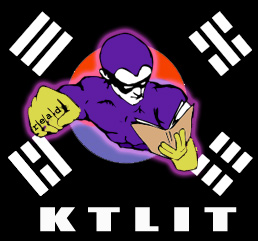An interesting article in Korea Times, Korean young writers trying to make it to global scene which is putatively talking about Korean young writers success overseas, primarily in non-English-speaking countries, but then inevitably returning and returning to the question of success in the US market.
It begins by referring to a recent overseas residence in France for Korean writers (supported by LTI Korea, who just don’t stop trying^^):
When Korean young novelist Han Yu-joo strolled around small, beautiful villages in Aix-en-Provence in the south of France, she found a slew of small bookstores that help sustain its rich culture. She also discovered French people who love reading, are open to other cultures in this region, and who are curious about Korean literature.
This victory, though, is immediately (and I have to say I completely agree with the point being made) contrasted to the US:
Judging from her previous experiences in the United States in which the majority of people who attended Korean literature-related events were Korean Americans or Korean students, French readers were favorable to Korean literature even if they have no connection with Korea.
LOL.. can’t we take one success at a time and then concentrate on the problem in the US?
Anyway, the article goes on to do a good job of explaining some of the difficulties in penetrating the US market, particularly for translations. Hopefully, the article notes:
The LTI has been operating differentiated strategies reflecting regional characteristics. France is rather flexible in accepting foreign literature than that of the U.S. or Britain. For example, participating writers in the IWP are supposed to focus on exchanges between the writers, while the authors dispatched to France are required to collaborate with local translators to make their works adapted into French.
That writing is a bit… er.. ‘non-English,’ but it’s good that LTI is adopting this differential strategy. Now, they need to hire some chiseled young go-getter (blush! Me???) to work the US crowd. Because, as author Han notes:
Korea is a rare country which has such a large amount of literary works, with some 50 million of the population. The thing is what literary work is worth reading is not selling overseas. Writers should go back to basics, focusing on good writing. We don’t have to be hasty for the immediate results of Korean literature in the overseas market.
And if you believe that is true, then the problem is either in translation or marketing, and a market-based approach to each of those problems is the only way to make Korean literature work in most English-language countries.
I won’t go into it too deeply, but if you want to understand the marketing problems that Korean literature is currently having in English, take a look at Qi-Ranger’s sensible take on how the marketing of Korean food (which is awesome) was utterly misguided and failed. Exchange the world “literature” for the word “food” (or any synonym) and the problem may become clearer.
Hat Tip to My So Called Research for pointing me to this article.



